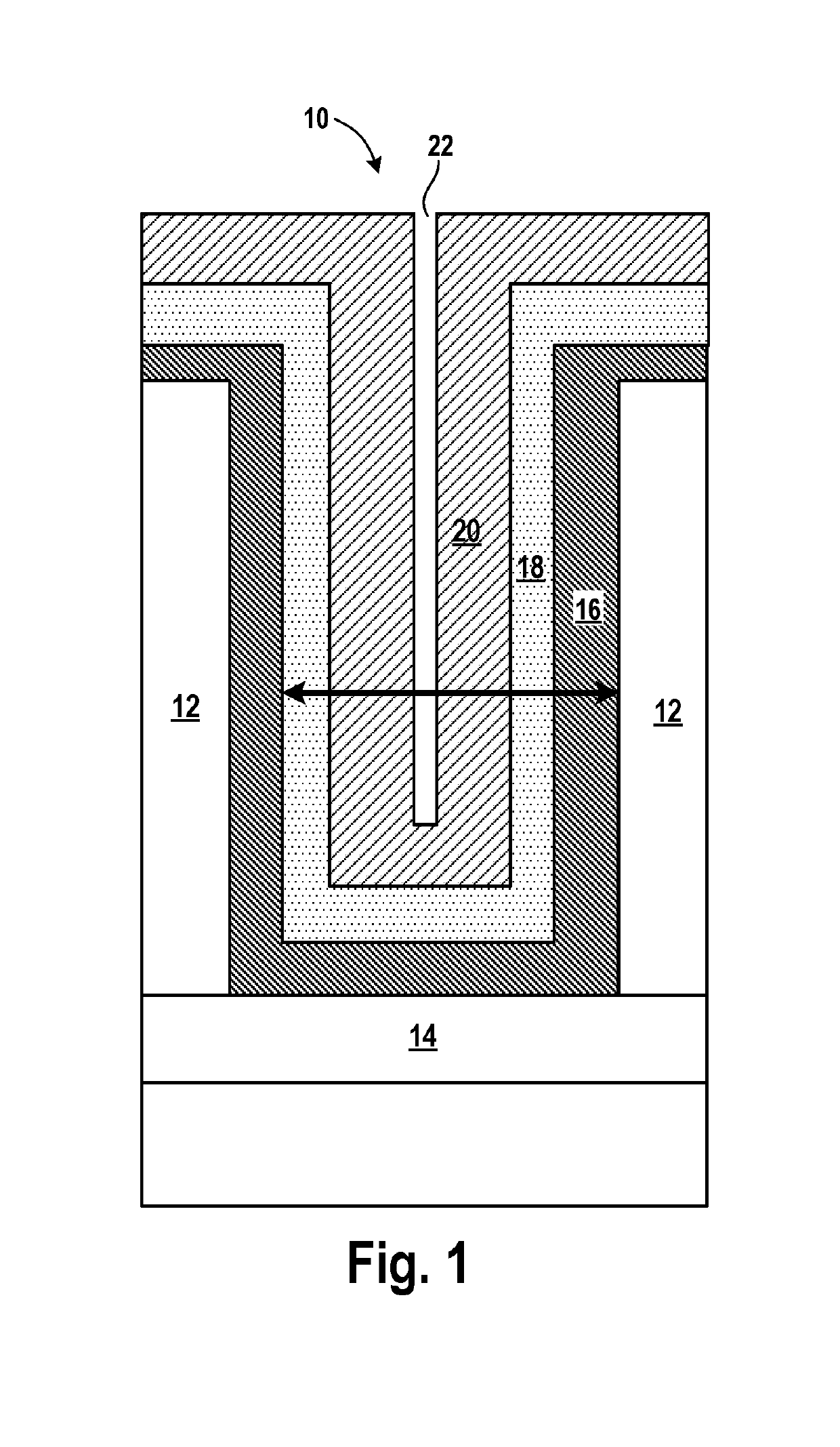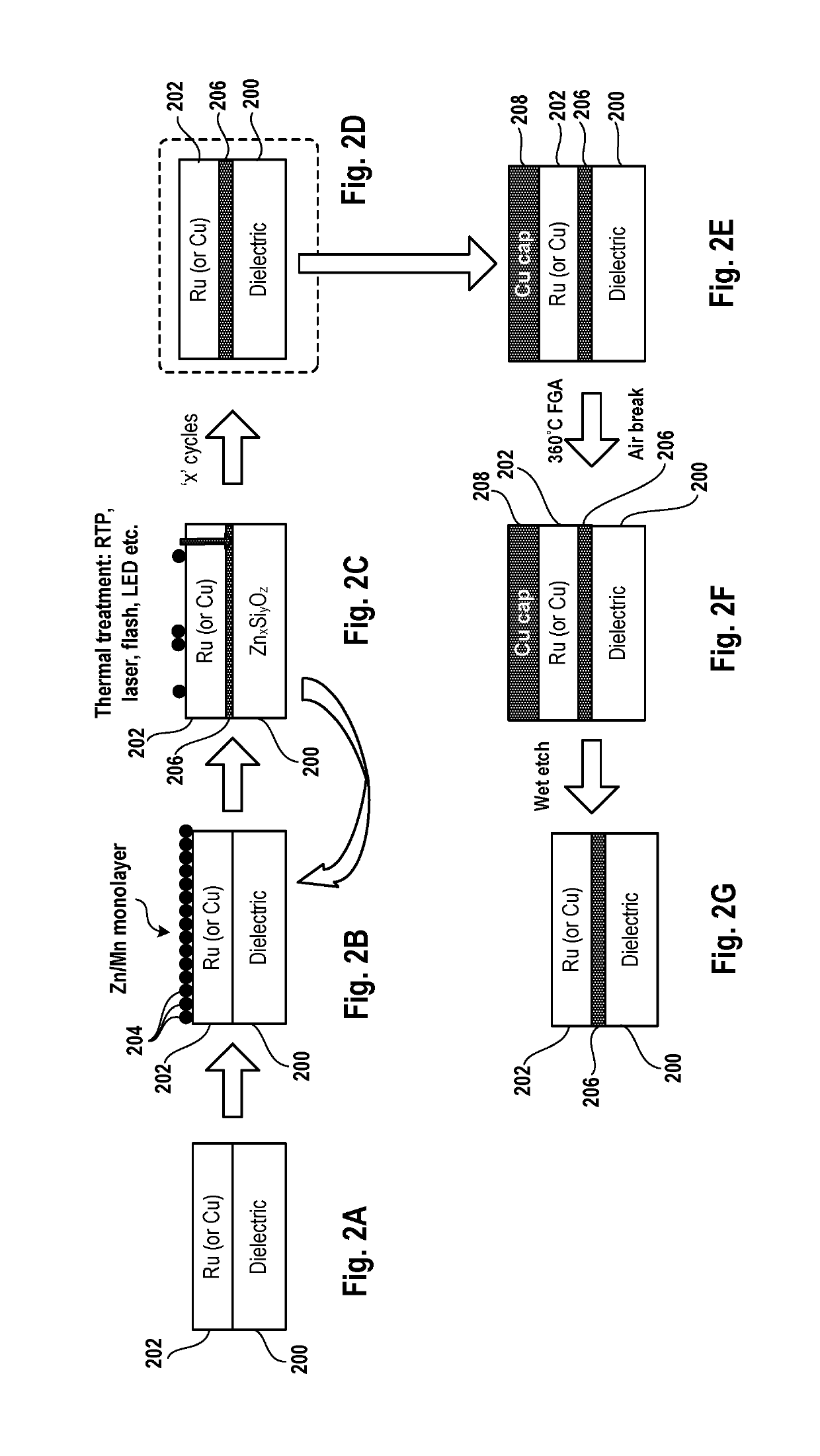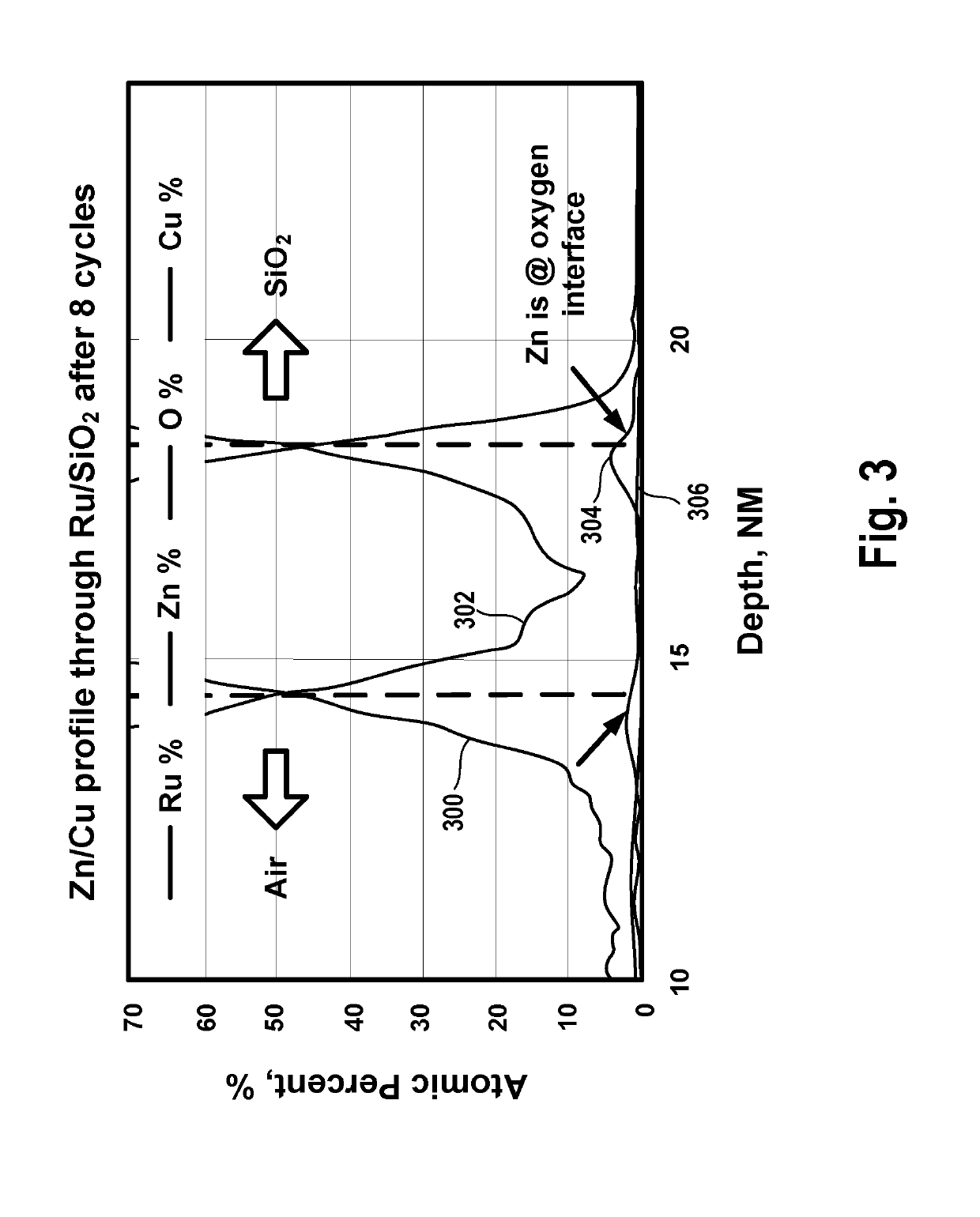Electrochemical doping of thin metal layers employing underpotential deposition and thermal treatment
a thin metal layer and underpotential deposition technology, applied in the direction of liquid/solution decomposition chemical coating, semiconductor/solid-state device details, coatings, etc., can solve the problem of scaling the barrier layer beyond certain critical dimensions, and achieve the effect of superior adhesion and barrier properties
- Summary
- Abstract
- Description
- Claims
- Application Information
AI Technical Summary
Benefits of technology
Problems solved by technology
Method used
Image
Examples
Embodiment Construction
[0031]In the following description, numerous specific details are set forth to provide a thorough understanding of the presented embodiments. The disclosed embodiments may be practiced without some or all of these specific details. In other instances, well-known process operations have not been described in detail to not unnecessarily obscure the disclosed embodiments. While the disclosed embodiments will be described in conjunction with the specific embodiments, it will be understood that it is not intended to limit the disclosed embodiments.
[0032]In keeping with Moore's Law, there has been a continual drive towards smaller and smaller feature sizes in the semiconductor industry. At present, semiconductor manufacturers are commonly producing devices with a 28 nanometer (nm) feature size, or approximately 28 nm pitch. Devices with a 36 nm pitch size are expected to soon. Typically, the pitch is halved every two technology nodes. Thus, it is expected that within about two to three no...
PUM
| Property | Measurement | Unit |
|---|---|---|
| feature size | aaaaa | aaaaa |
| feature size | aaaaa | aaaaa |
| size | aaaaa | aaaaa |
Abstract
Description
Claims
Application Information
 Login to View More
Login to View More - R&D
- Intellectual Property
- Life Sciences
- Materials
- Tech Scout
- Unparalleled Data Quality
- Higher Quality Content
- 60% Fewer Hallucinations
Browse by: Latest US Patents, China's latest patents, Technical Efficacy Thesaurus, Application Domain, Technology Topic, Popular Technical Reports.
© 2025 PatSnap. All rights reserved.Legal|Privacy policy|Modern Slavery Act Transparency Statement|Sitemap|About US| Contact US: help@patsnap.com



